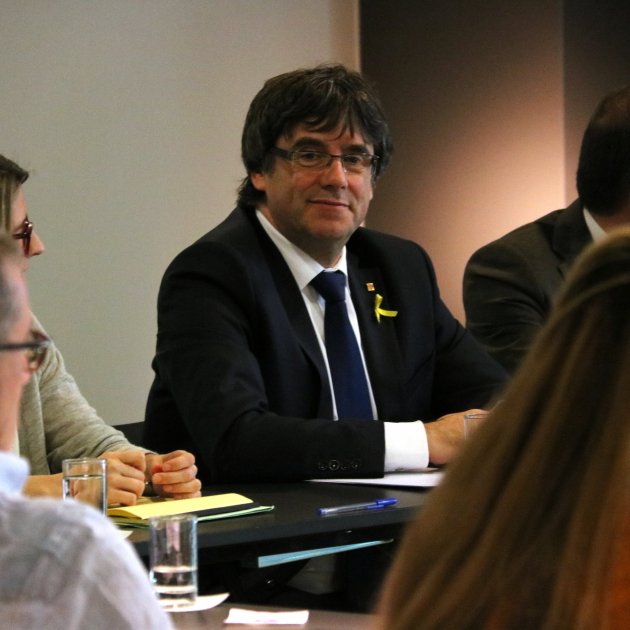Sant Jordi (Saint George's Day) is exceptional this year, at least from a political point of view, without the presence of the Catalan president, with part of the government in exile and the rest in prison, without the traditional mass or blessing of the roses, and without the reception of the hereu and the pubilla1. All thanks to the application of article 155 of the Spanish Constitution.
The Catalan government in exile, however, in an attempt to give the day an air of normality, has issued an official statement celebrating the day with "special thoughts for those who are deprived of their freedom".
The text remembers two "very important [figures] in our collective history", who both suffered repression, censorship and exile first hand: the writer Manuel de Pedrolo, 100 years to the month since his birth, and Pompeu Fabra, famous for his work reforming and standardising Catalan.
The statement highlights that "the censorship and exile which they were victims of are some of the dragons2 which have often tried to harm us as a people", but assures that the "joy" and "generosity which permeate our country every Sant Jordi have made us irreducible".
It describes Manuel de Pedrolo as one of the writers with the greatest commitment to the country and "the most censored author of the whole Franco era". It says that, with a legacy of more than 120 works, he demonstrated his "profound and incorruptible commitment" to the country and its people.
As for Pompeu Fabra, it emphasises his "unreserved" vocation to serve, which led to him becoming a minister of the government in exile during the Franco era.
Referring to the day's two symbols, the current government in exile expresses a wish for the rose "to be a bearer of our civic values" and the book "[a bearer] of our desire to grow more powerful and more free together". The statement talks of a day opened "to the world and to everyone near us", and invites the public to enjoy "the smells, the colours and the smiles of this day which, doubtlessly, are essential ingredients for the better country which we're building".
Full statement:
Translator's notes:
1. The hereu and pubilla (literally, heir and heiress) are two young people chosen annually by various towns around Catalonia, and a pair for the whole country, as representatives of that place, often with an idea of protecting and promoting Catalan culture. The role is akin to that of a beauty queen elsewhere, albeit with different selection criteria.
2. "Dragons" here is an allusion to the myth of Saint George and the dragon.
